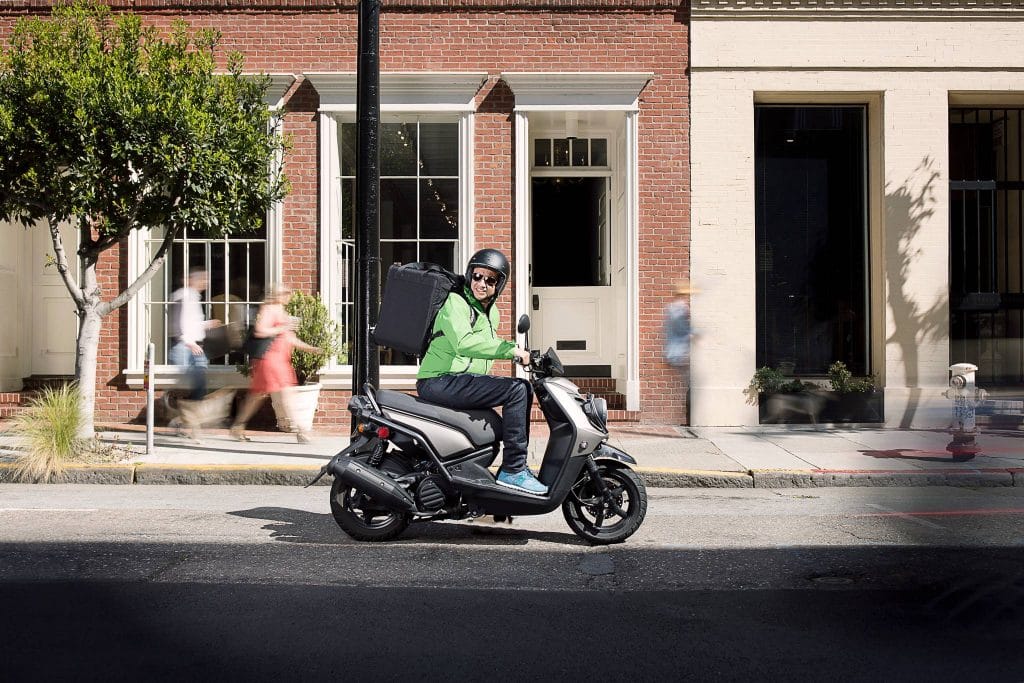2288 results for "earn" across all locations
Uber Flash: Se cadastre ou indique motoristas de utilitários, caminhonetes, vans ou pequenos caminhões!
Comece a realizar viagens Uber Flash Utilitário, Van ou Carreto

額外趟次挑戰
Uber Eats 外送合作夥伴可在夥伴端 App 內的「選單 > 機會」中查看您專屬的額外趟次挑戰獎勵活動,每位外送合作夥伴所看到的獎勵方案不盡相同。外送合作夥伴保有是否參與本獎勵活動、滿足本獎勵活動條款或完成獎勵行程趟次之決定。
Conditional Similarity Networks
A. Veit, S. Belongie, T. Karaletsos
What makes images similar? To measure the similarity between images, they are typically embedded in a feature-vector space, in which their distance preserve the relative dissimilarity. However, when learning such similarity embeddings the simplifying assumption is commonly made that images are only compared to one unique measure of similarity. […] [PDF]
Conference on Computer Vision and Pattern Recognition (CVPR), 2017
Improving exploration in evolution strategies for deep reinforcement learning via a population of novelty-seeking agents
E. Conti, V. Madhavan, F. Such, J. Lehman, K. Stanley, J. Clune
Evolution strategies (ES) are a family of black-box optimization algorithms able to train deep neural networks roughly as well as Q-learning and policy gradient methods on challenging deep reinforcement learning (RL) problems, but are much faster (e.g. hours vs. days) because they parallelize better. […] [PDF]
ViGIL @ NeurIPS 2017 (NeurIPS), 2017
Manifold: A Model-Agnostic Framework for Interpretation and Diagnosis of Machine Learning Models
J. Zhang, Y. Wang, P. Molino, L. Li, D. Ebert
Interpretation and diagnosis of machine learning models have gained renewed interest in recent years with breakthroughs in new approaches. We present Manifold, a framework that utilizes visual analysis techniques to support interpretation, debugging, and comparison of machine learning models in a more transparent and interactive manner. […] [PDF]
IEEE Visualization (IEEE VIS), 2018

Celebrating Women in Fitness this International Women’s Day
This week we are honored to bring you stories of incredible Saudi women who pursue their passion for health, sports and fitness.
Fiber: A Platform for Efficient Development and Distributed Training for Reinforcement Learning and Population-Based Methods
J. Zhi, R. Wang, J. Clune, K. Stanley
Recent advances in machine learning are consistently enabled by increasing amounts of computation. Reinforcement learning (RL) and population-based methods in particular pose unique challenges for efficiency and flexibility to the underlying distributed computing frameworks. These challenges include frequent interaction with simulations, the need for dynamic scaling, and the need for a user interface with low adoption cost and consistency across different backends. In this paper we address these challenges while still retaining development efficiency and flexibility for both research and practical applications by introducing Fiber, a scalable distributed computing framework for RL and population-based methods. […] [PDF]
arXiv

UberMENTOR: Meet with Chicago’s Best and Brightest
Entrepreneurs, young professionals, and aspiring executives — your opportunity to learn from Chicago’s best and brightest is just a tap away.
On January 21st, request UberMENTOR for a chance to ride with one of Chicago’s top leaders from 1871, Techweek, ContextMedia, Leo Burnett, Future Founders and more—brought to you by the Startup Institute. Find out how to request and learn more about each of the mentors below.

Ludwig v0.3 Introduces Hyperparameter Optimization, Transformers and TensorFlow 2 support
In February 2019, Uber released Ludwig, an open source, code-free deep learning (DL) toolbox that gives non-programmers and advanced machine learning (ML) practitioners alike the power to develop models for a variety of DL tasks. With use cases spanning text classification, natural language understanding, image classification, and time series forecasting, among many others, Ludwig gives users the ability to easily train and test DL models, and the power to tweak parameters for exploring architectures, comparing models, and improving performance.
Hamiltonian Neural Networks
S. Greydanus, M. Dzamba, J. Yosinski
Even though neural networks enjoy widespread use, they still struggle to learn the basic laws of physics. How might we endow them with better inductive biases? In this paper, we draw inspiration from Hamiltonian mechanics to train models that learn and respect exact conservation laws in an unsupervised manner. […] [PDF]
Conference on Neural Information Processing Systems (NeurIPS), 2019